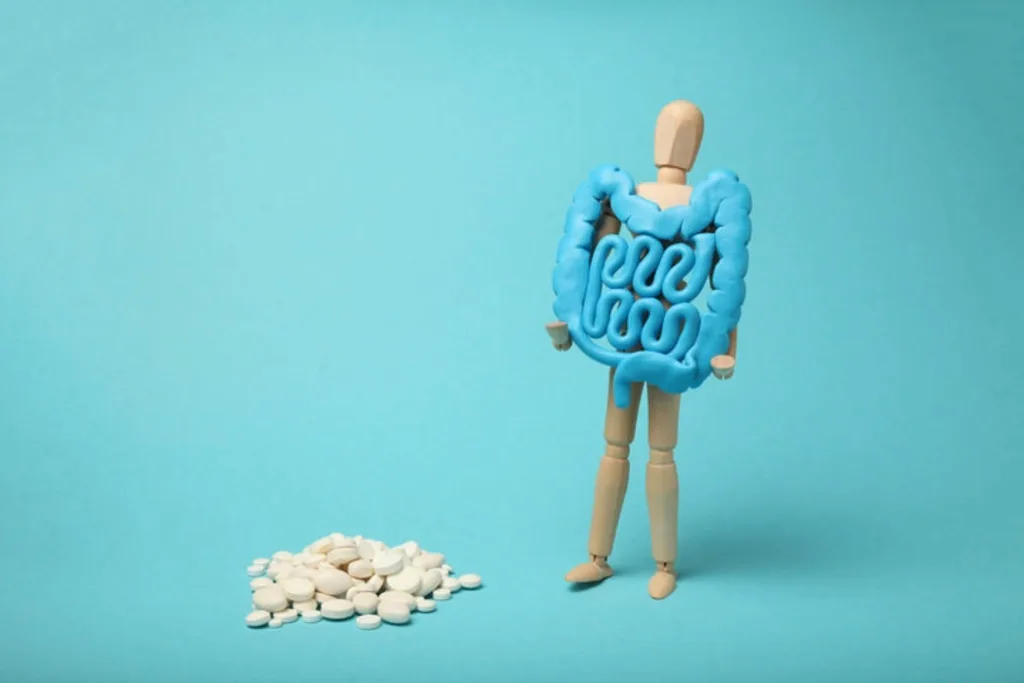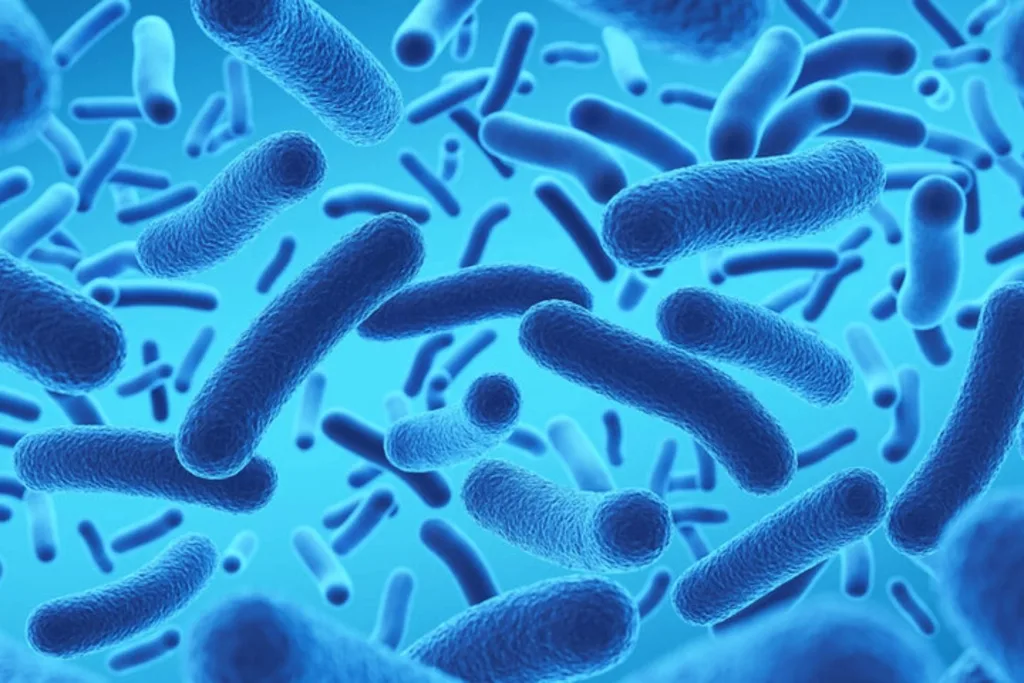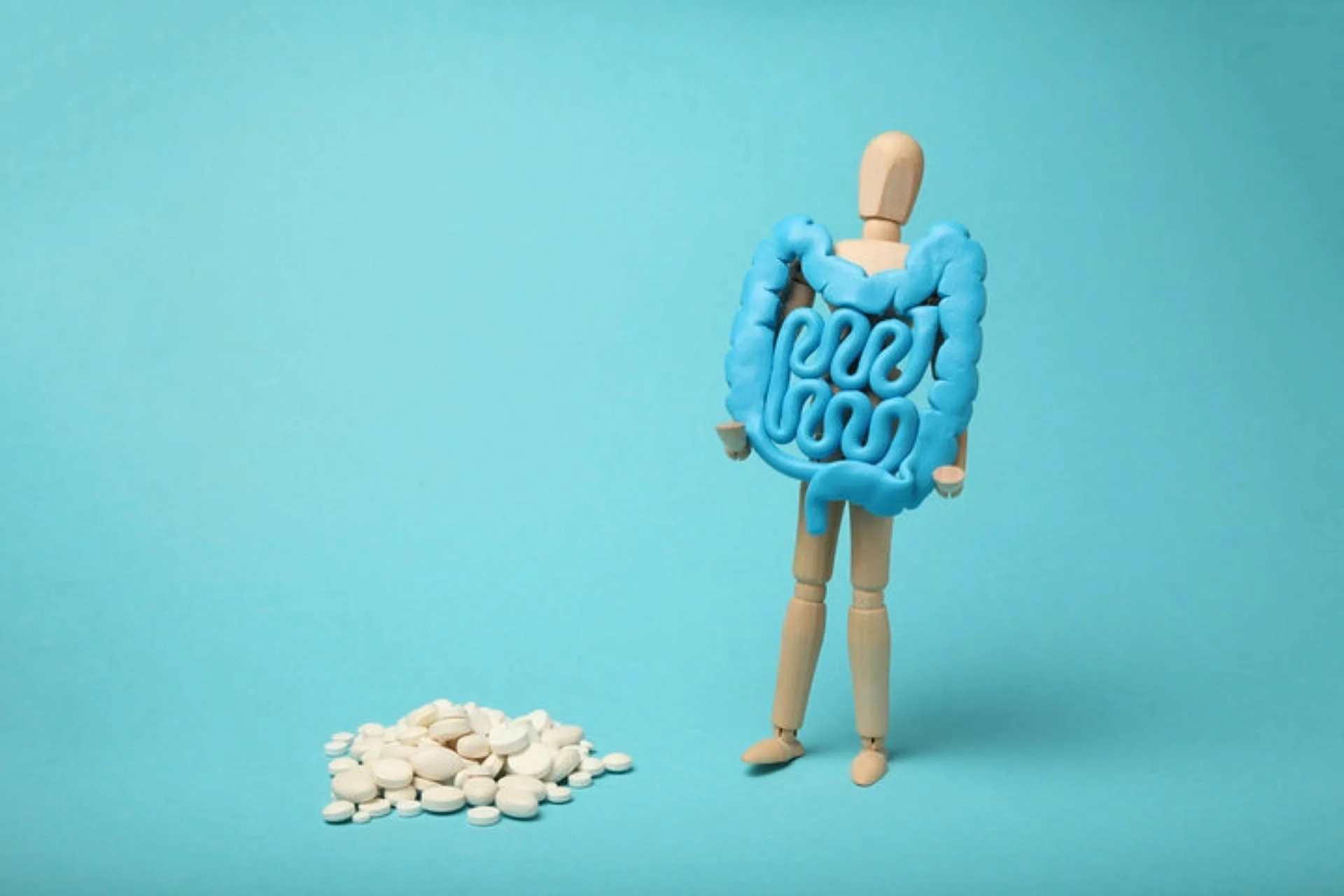While incompletely understood, the gut microbiota seems to play an important role in IBS. This, even though an IBS-specific gut microbial signature has not been found. In other words, you can’t tell by looking at someone’s gut microbe test results that they have IBS, but it seems clear that some kind of imbalance in the composition of gut microbes is often present in IBS.
For this reason, impacting the gut microbiota through probiotics has been a hot research topic recent years.

What are probiotics and are they helpful or IBS?
Probiotics are live micro-organisms that have a health promoting effect on us. Lots of research has been done on IBS and probiotics, yet the studies have been very different from each other, which makes it difficult to compare these studies and make firm conclusions and recommendations. This is why national IBS guidelines are usually quite vague about their recommendations. The American College of Gastroenterology doesn’t recommend them at all at this point, while other national guidelines are more neutral – they say probiotics may help but it’s not clear which probiotic is best for which symptom.
Many probiotic products certainly claim to ease IBS symptoms by improving the microbial balance in the large intestine. On top of this, I know of many cases in which simply starting a probiotic made symptoms nearly disappear.
So, are probiotics a silver bullet for IBS? The truth is, It’s not clear. In my experience, they could help some people, but not all. It seems to be a highly individual matter that depends on many factors and at the moment there’s no way of knowing in advance who might benefit and who might not.

Thinking about trying probiotics to ease IBS symptoms?
Here are a few points to be aware of:
- It matters what you choose. Pick a specific species and even strain.Do some research – pick one that is studied for the symptom(s) your are trying to relieve. Pay attention if the product should be a single strain probiotic, or an assortment of a few. I can help you if you aren’t sure where to look.
- Try the probiotic for at least 4 weeks to see if there’s a benefit. If nothing happens in this timeframe, there’s no use continuing it.
- Probiotics can’t colonize the gut, which is good and bad. It’s good in that if the probiotic doesn’t work for you and even makes your symptoms worse, then the offending strain will leave your system soon enough. But bad in that you have to keep taking the probiotic to benefit from it. This can be expensive in the long run.
- Your symptoms might get worse for a few days on a new probiotic. This is normal, so be patient. If after a week things are not improving/normalizing, stop taking the probiotic.
- Probiotic products vary hugely in quality and purity. Always choose a product that has a third-party verification. Otherwise, you have no idea if the product has the bacteria it’s supposed to have, and only that. Many products might be contaminated with ingredients and bacteria that shouldn’t be there, and sometimes this can be dangerous. Thankfully, in Europe probiotic products are much more regulated than in the US, which makes finding a reputable one easier.
- Make sure the product has enough of the bacterial strain you need. If the dose is too low, it won’t likely have the desired effect.
- With high quality products, the risk of using probiotics is low – there is virtually no harm in trying them, unless you have problems with low immunity (like from cancer treatments). Small intestinal bacterial overgrowth is another diagnosis for which I wouldn’t recommend probiotics. If you are pregnant or breastfeeding, check with your doctor to make sure it’s safe for you.
- Store probiotics carefully. Live organisms can die if it gets too cold or too hot. They also lose potency over time.
Probiotics for IBS? What’s the conclusion?
Should you try probiotics? To me, probiotics could be helpful for IBS, but there are still many unknowns about them. They may help some, but it seems to me that there are other therapies that are probably more useful to invest in first, such as calming the gut-brain axis, the interaction problem between the gut and the brain. Methods that do this calm your nervous system and reduce stress, and as a bonus, they support gut microbes, too.
Need tips? Here’s an idea, or give me a call and we can chat about your options.
PS. Are you struggling with bloating? If yes, you might benefit from my free ebook “Why the Balloon Belly”, download it here.
References
Hillestad EMR, van der Meeren A, Nagaraja BH, Bjørsvik BR, Haleem N, Benitez-Paez A, Sanz Y, Hausken T, Lied GA, Lundervold A, Berentsen B. Gut bless you: The microbiota-gut-brain axis in irritable bowel syndrome. World J Gastroenterol. 2022 Jan 28;28(4):412-431. doi: 10.3748/wjg.v28.i4.412. PMID: 35125827; PMCID: PMC8790555.
Merenstein D, Pot B, Leyer G, Ouwehand AC, Preidis GA, Elkins CA, Hill C, Lewis ZT, Shane AL, Zmora N, Petrova MI, Collado MC, Morelli L, Montoya GA, Szajewska H, Tancredi DJ, Sanders ME. Emerging issues in probiotic safety: 2023 perspectives. Gut Microbes. 2023 Jan-Dec;15(1):2185034. doi: 10.1080/19490976.2023.2185034. PMID: 36919522; PMCID: PMC10026873.
Satish Kumar L, Pugalenthi LS, Ahmad M, Reddy S, Barkhane Z, Elmadi J. Probiotics in Irritable Bowel Syndrome: A Review of Their Therapeutic Role. Cureus. 2022 Apr 18;14(4):e24240. doi: 10.7759/cureus.24240. PMID: 35602835; PMCID: PMC9116469.


